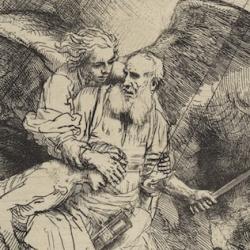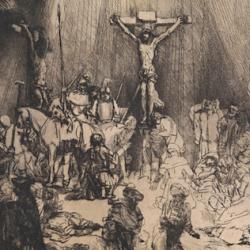Girard’s theory of scapegoating as the great virtue of explaining how the death of Jesus can remake human society. By refusing to acknowledge sin, Jesus becomes the innocent scapegoat, and thereby exposes the scapegoat mechanism for what it is. That exposure is the good news, and undoes the perverse dynamics of sacrificial culture.
That is not quite right though. A potential scapegoat can go to his cross refusing to accept blame, but that may not effect any change on the mob that puts him on the cross. If people who hate Trump succeed in derailing his candidacy, will they suddenly realize that he was as innocent and humble as he claims? Hardly. They will continue to think they did a public service.
To be gospel, the innocent scapegoat must not only declare his innocence, but he must willingly accept the burden of guilt anyway. The scapegoat that undoes scapegoating is the voluntary scapegoat; not the classic voluntary scapegoat who concedes his own guilt, but a voluntary scapegoat that insists on his innocence.
Jesus is sinless, yet He bears a burden that is not his own. “I have done nothing wrong,” Jesus says, “yet I will bear the burden of the world all the way to the cross.” That’s why the crucified Jesus is the scapegoat who not only exposes scapegoating but who sucks all the energy out of scapegoating.















